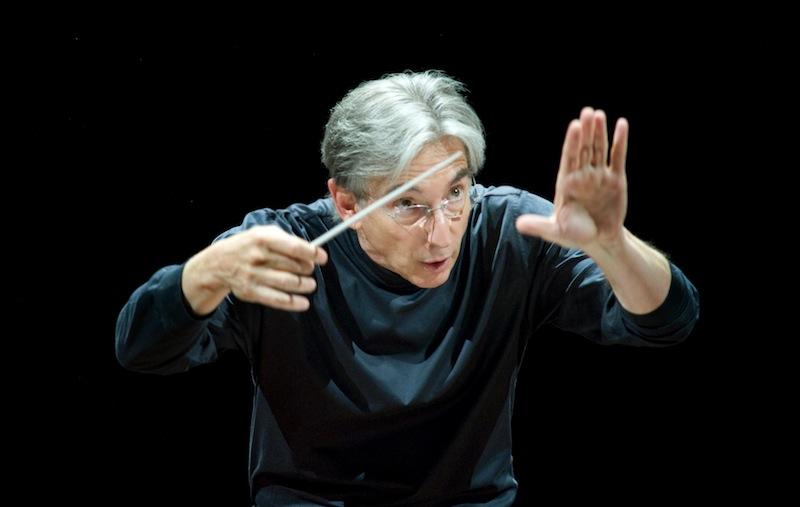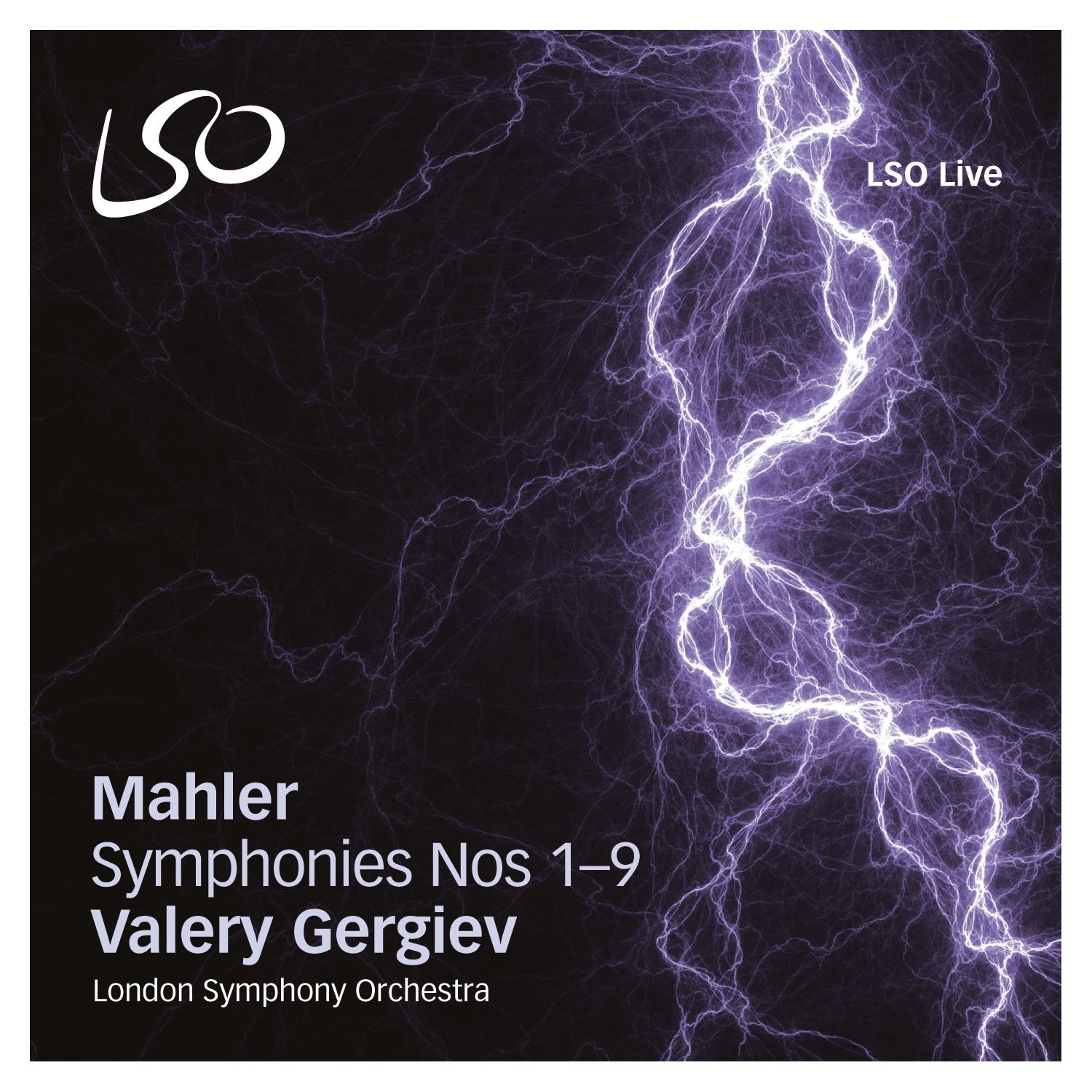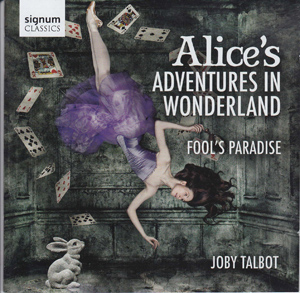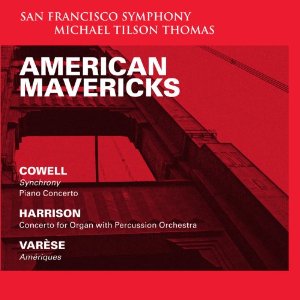Classical CDs Weekly: Mahler, Joby Talbot, American Mavericks | reviews, news & interviews
Classical CDs Weekly: Mahler, Joby Talbot, American Mavericks
Classical CDs Weekly: Mahler, Joby Talbot, American Mavericks
An unorthodox Mahler cycle, a belter of a ballet score and some extraordinary sounds from San Francisco


Buying a set of Mahler symphonies used to mean blowing one’s annual record budget in one swoop. You can now buy cycles by the likes of Bernstein and Tennstedt for less than £30, and this economically priced LSO Live box collects Valery Gergiev’s live recordings. All were taped in the Barbican apart from the 8th, performed in St Paul’s Cathedral. It’s unreasonable to expect any one conductor to get all these pieces right. And, when Gergiev does really hit the mark, these performances contain sensational moments. I’m thinking of Symphonies 5-7, where the combination of pin sharp rhythms and brassy exuberance make for compelling listening. This Sixth sounds punchy and aggressive, far less maudlin than usual. Mahler is left down but not out at the close, ready to pick himself up and dust himself down before the phantasmagorical Seventh’s more optimistic narrative. Gergiev’s last movement is uplifting and brazen; he clearly has no doubts about its structural integrity. An upbeat, rousing Eighth convinces too, the resonant acoustic brilliantly controlled by producer James Mallinson.
Mahler’s earlier symphonies don’t always respond well to the Gergiev approach; No 1 just doesn’t possess enough charm. Having the entire bass section play the third movement’s lugubrious Frère Jacques theme just feels wrong. And in those moments of stillness which lie at the heart of the outer movements, you wish that Gergiev would linger a little more. Mahler’s music is often more affecting when it’s a little fuzzy around the edges – here, everything’s just too sharply defined and brightly lit. The same issues also afflict the Fourth Symphony, which doesn’t exude enough wonder. Gergiev’s Resurrection is redeemed by an incisive, dramatic finale, and his Third Symphony works well – lustrous brass in the opening movement and just enough impish fun in the two scherzi. This Ninth left me unmoved - a little too glitzy and controlled. Beautiful in places, but there’s something missing – a colleague reflected that “it just doesn’t sound like Mahler.” But the curious should investigate – the positives outweigh the negatives and the orchestral playing never disappoints.

Opening with, in the composer Joby Talbot’s words, “a strange, bitonal tick-tock”, this suite drawn from the score to the Royal Ballet’s first full-length ballet for 20 years is a blast. This is real music – witty, unpretentious and clever, and the extracts chosen on this disc never outstay their welcome. Themes associated with specific characters are invariably memorable and intelligently developed. The suite’s opening is entrancing – a hazy dreamscape, overlaid with glittering percussion. Everything is beautifully judged – the Cheshire Cat’s music is strangely undefinable and teeters on the edge of invisibility, the purring woodwinds giving the game away. The Mad Hatter’s tea party’s muted trumpets suggest a music-hall turn. The ballet’s apotheosis briefly implies that we’re going to get something grandiose along the lines of Daphnis and Chloe, before Talbot wraps things up sweetly and calmly.
The coupling, Fool’s Paradise was first performed in 2007. Scored for strings and piano, it’s a more restrained affair, though no less attractive. Derived from a piano trio written to accompany a silent film about a ballerina in peril, Talbot’s music is melancholy and affecting – the concertante piano part beautifully delivered by the composer. Both scores are given inspired performances – conductor Christopher Austin helped Talbot finish the orchestrations for Alice and his Royal Philharmonic Orchestra sound as if they’re having a ball. All given spectacular sonics, in a recording made in London’s Henry Wood Hall.

With an album as scarily titled as this, containing pieces you’ve (probably) never heard, often with forbidding titles, you need a persuasive guide. Michael Tilson Thomas is your man – this is a superb disc, packed with stuff you’ll want to listen to repeatedly. Tilson Thomas recorded music by Henry Cowell back in the 1970s and opens this collection with Cowell’s Synchrony, composed in 1930 as a dance piece for Martha Graham – who failed to finish the choreography. You can’t blame her – I can’t imagine anyone dancing to the exotically coloured tone clusters which dominate the music’s slower sections, though things become far more interesting rhythmically as the piece develops. Cowell’s Piano Concerto dates from the same year and is played here by the wonderful Jeremy Denk. Who’s also an expert in demystifying the unknown; the dissonant angularity of Cowell’s chromium-plated music is rendered with romanticism and flamboyance. You can even hear traces of Gershwin beneath the snarling exterior.
When Lou Harrison received separate commissions for organ and percussion ensemble, he fused the two into his Concerto for Organ with Percussion Orchestra. The complexity is rhythmic rather than harmonic; Harrison’s fondness for Javenese gamelan powers everything. Harrison’s pounding, diatonic organ part blasts away under a mass of percussion, coming to a sudden, dramatic halt. It's phenomenal. As is this rendition of Varèse’s Amériques, written for colossal orchestral forces and heard here in a recording which can do the dynamic range full justice. Wait until your neighbours are out and listen to this at full volume. Tilson Thomas makes the most of the spookier, quiet interludes, and when these players are operating at full pelt you can discern every strand.
Share this article
The future of Arts Journalism
You can stop theartsdesk.com closing!
We urgently need financing to survive. Our fundraising drive has thus far raised £49,000 but we need to reach £100,000 or we will be forced to close. Please contribute here: https://gofund.me/c3f6033d
And if you can forward this information to anyone who might assist, we’d be grateful.

Subscribe to theartsdesk.com
Thank you for continuing to read our work on theartsdesk.com. For unlimited access to every article in its entirety, including our archive of more than 15,000 pieces, we're asking for £5 per month or £40 per year. We feel it's a very good deal, and hope you do too.
To take a subscription now simply click here.
And if you're looking for that extra gift for a friend or family member, why not treat them to a theartsdesk.com gift subscription?
more
 'We are bowled over!' Thank you for your messages of love and support
Much-appreciated words of commendation from readers and the cultural community
'We are bowled over!' Thank you for your messages of love and support
Much-appreciated words of commendation from readers and the cultural community
 Bryony Kimmings, Soho Walthamstow review - captivating tale of the cycle of life
Witty ode to Mother Nature
Bryony Kimmings, Soho Walthamstow review - captivating tale of the cycle of life
Witty ode to Mother Nature
 La bohème, Opera North review - still young at 32
Love and separation, ecstasy and heartbreak, in masterfully updated Puccini
La bohème, Opera North review - still young at 32
Love and separation, ecstasy and heartbreak, in masterfully updated Puccini
 Frankenstein review - the Prometheus of the charnel house
Guillermo del Toro is fitfully inspired, but often lost in long-held ambitions
Frankenstein review - the Prometheus of the charnel house
Guillermo del Toro is fitfully inspired, but often lost in long-held ambitions
 Shibe, LSO, Adès, Barbican review - gaudy and glorious new music alongside serene Sibelius
Adès’s passion makes persuasive case for the music he loves, both new and old
Shibe, LSO, Adès, Barbican review - gaudy and glorious new music alongside serene Sibelius
Adès’s passion makes persuasive case for the music he loves, both new and old
 Solar Eyes, Hare & Hounds, Birmingham review - local lads lay down some new tunes for a home crowd
Psychedelic indie dance music marinated in swirling dry ice
Solar Eyes, Hare & Hounds, Birmingham review - local lads lay down some new tunes for a home crowd
Psychedelic indie dance music marinated in swirling dry ice
 The Free Association launch review - strong start for improv company
Troupe moves into permanent home
The Free Association launch review - strong start for improv company
Troupe moves into permanent home
 The Lemonheads' 'Love Chant' is a fine return to form
Evan Dando finally gets back in the saddle with an album of new tunes
The Lemonheads' 'Love Chant' is a fine return to form
Evan Dando finally gets back in the saddle with an album of new tunes
 Anja Mittermüller, Richard Fu, Wigmore Hall review - a glorious hall debut
The Austrian mezzo shines - at the age of 22
Anja Mittermüller, Richard Fu, Wigmore Hall review - a glorious hall debut
The Austrian mezzo shines - at the age of 22
 Music Reissues Weekly: Evie Sands - I Can’t Let Go
Diligent, treasure-packed tribute to one of Sixties’ America’s great vocal stylists
Music Reissues Weekly: Evie Sands - I Can’t Let Go
Diligent, treasure-packed tribute to one of Sixties’ America’s great vocal stylists
 First Person: clarinettist Oliver Pashley on the new horizons of The Hermes Experiment's latest album
Compositions by members of this unusual quartet feature for the first time
First Person: clarinettist Oliver Pashley on the new horizons of The Hermes Experiment's latest album
Compositions by members of this unusual quartet feature for the first time
 London Film Festival 2025 - a Korean masterclass in black comedy and a Camus classic effectively realised
New films from Park Chan-wook, Gianfranco Rosi, François Ozon, Ildikó Enyedi and more
London Film Festival 2025 - a Korean masterclass in black comedy and a Camus classic effectively realised
New films from Park Chan-wook, Gianfranco Rosi, François Ozon, Ildikó Enyedi and more

Add comment